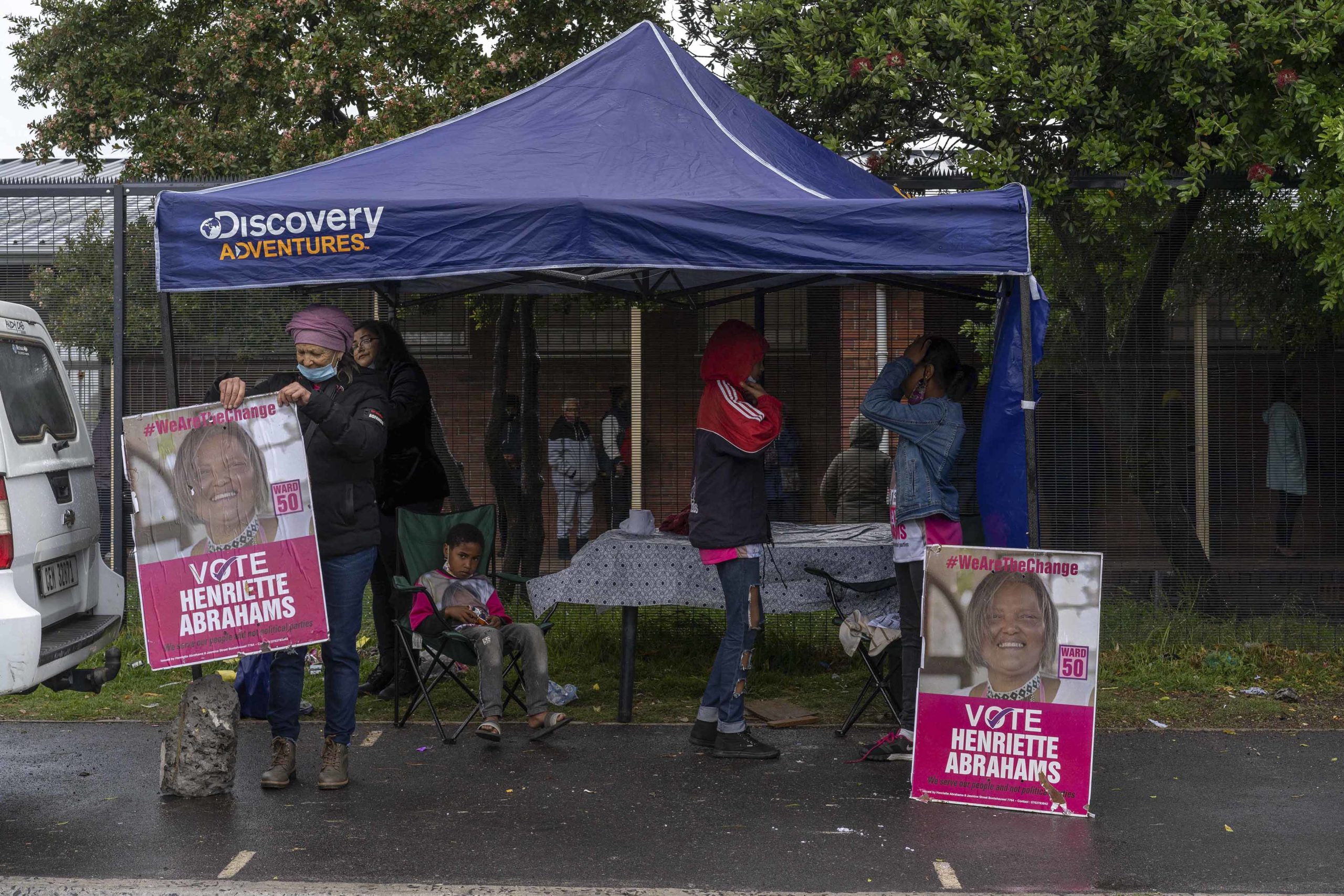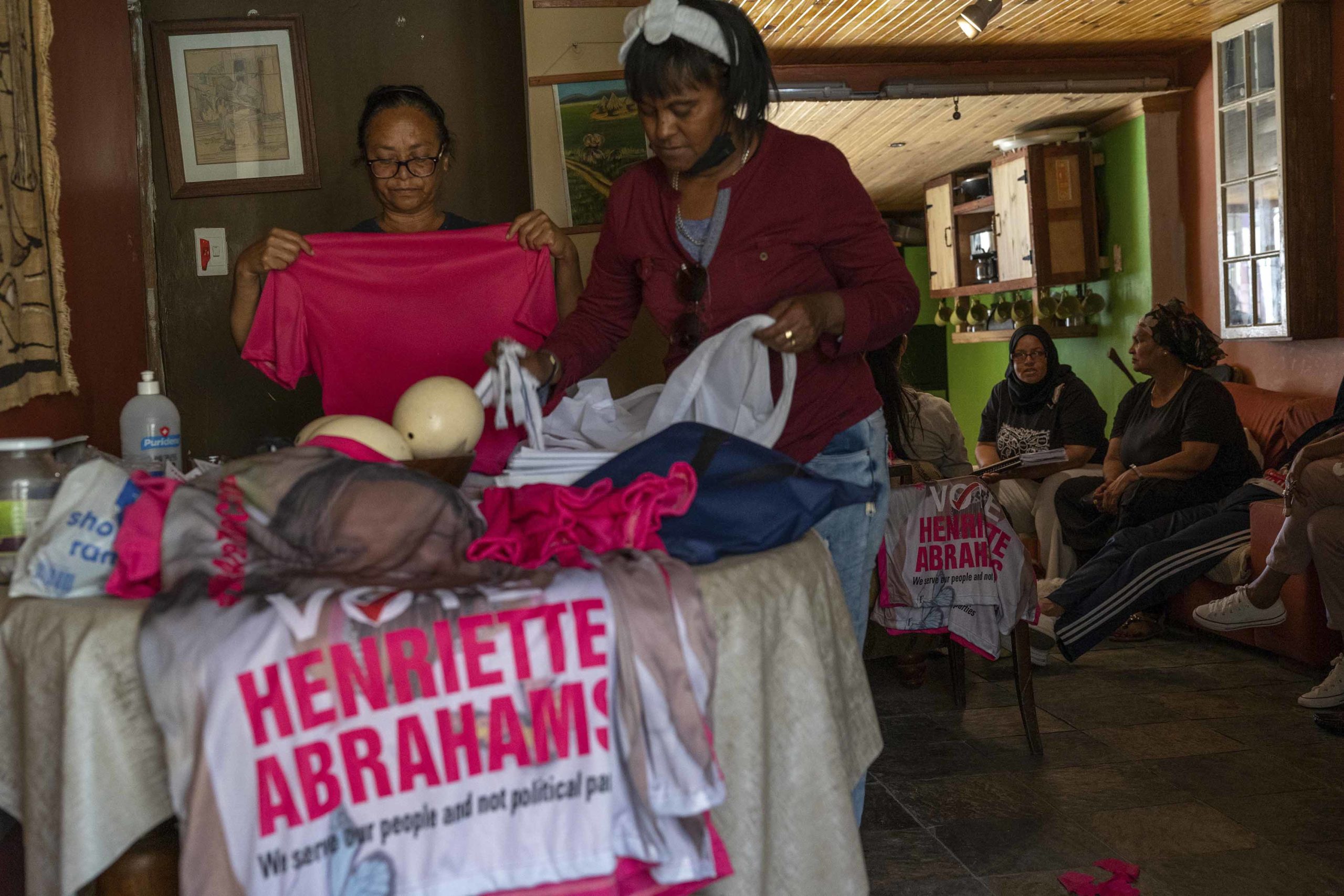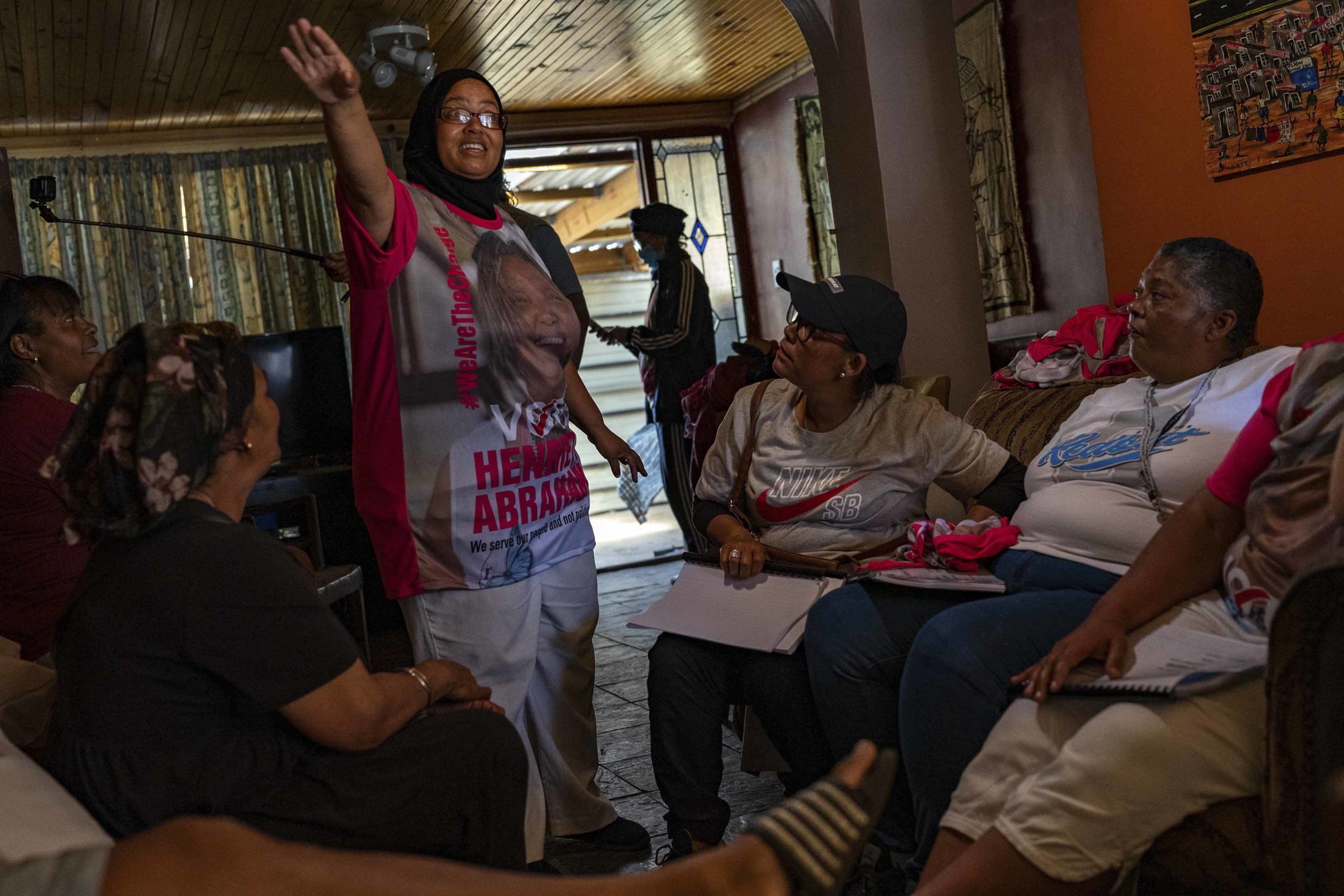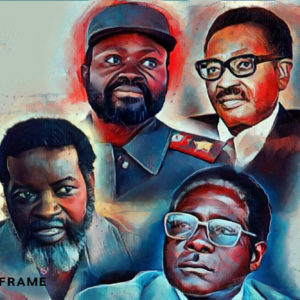Independent candidate disrupts election narrative
Like elsewhere in South Africa, residents in Bonteheuwel have become alive to the possibility of replacing politicians who don’t serve them with councillors focused on their local needs.
Author:
22 November 2021

“To tell you the honest truth, I don’t think we’re going to make it this time around. It would be a miracle if I should win,” said Henrietta Abrahams, 51. She was sitting on the couch in her home in Bonteheuwel, Cape Town, three days before the local government election on 1 November. Exhausted by the work week and election-related organising, there would be no rest for Abrahams until it was all over.
The calm atmosphere in her home was interrupted every now and then by visits from members of the Bonteheuwel Development Forum, an organisation she helped start in 2019. They were there to collect campaign posters to be displayed and pamphlets to be distributed.
Outside, the streets were calm. But one of the visitors briefly spoke to Abrahams about a man who had been shot in a nearby street the night before. She called Bonteheuwel a “war zone”.

Abrahams was not exaggerating when she said that it would be a miracle if she won. Bonteheuwel is a DA stronghold, with the party getting 81.46% of the votes in 2016. However, Abrahams’ intention was to disrupt the narrative that political parties need to run wards.
Abrahams’ introduction to politics happened over three decades ago, when she was a teenager. “Student Representative Council, youth politics, women’s politics, [murdered anti-apartheid activist] Ashley Kriel,” she said, listing the markers of her early political life.
“I was the first general secretary of Cosas (Congress of South African Students) before it was banned in 1986. We then formed Wesco, the Western Cape School Congress. I served in that structure and a number of others. So I’ve been in leadership since youth.”
Related podcast:
Describing her teenage self as “young and naïve”, Abrahams said she had romanticised the struggle. Like her comrades, she had believed that after it was won and apartheid overthrown, everyone would be equal.
“We believed we were going to do everything in the Freedom Charter. But we handed over power to a bunch of corrupt politicians that came out from exile, people who studied, who made the contacts and worked themselves rich and put themselves and their families and friends into BEE [black economic empowerment] deals,” she said. “Others who got nothing were destitute and died of hunger and deprivation. Never in [my] lifetime did I think that would happen. And that’s why we have to fight and build community structures and … teach people how to mobilise from the ground up. Because that’s been lost.”
Going home
In 2016, after working for non-governmental organisations for more than 30 years, Abrahams decided to move back to Bonteheuwel, her hometown. She bought a small house and decided to give one and a half years to the community in which she grew up. Five years later, she is still doing community work there and attempting to revive the culture of grassroots mobilisation through the work of the Bonteheuwel Development Forum.
The forum established street committees, which were initially focused on safety, in many areas of Bonteheuwel. It set up WhatsApp groups so that parents could be alerted to safeguard their children in the event of gang violence. In some areas, it established safe houses for children looking for shelter. “We’re doing a lot of trauma work with the youth and with women, because we have a broken society,” said Abrahams.
The Bonteheuwel Development Forum has also expanded its focus to include local economic development through so-called Cut, Make and Trim facilities, which are aimed at giving women the chance to make an income. “Our people [are] poor, unemployed, [some have to] look after grandchildren due to the grandchildren’s parents not being there. You sit with a lot of women around the ages of 40 and 50 in need of jobs,” Abrahams explained.

Early in 2021, the forum added the political landscape to its focus. It ran a survey in Bonteheuwel asking participants to nominate people they would like to see in the position of ward councillor. Abrahams’ name appeared more than anyone else’s.
After discussing the outcome of the survey, the forum decided that Abrahams would run and challenge the status quo. “So even if we don’t win it this time around, let’s just start changing the narrative and disrupt the power balance as it is in local government, [in] municipalities in the city,” said Abrahams.
“We’ve insisted that when we elect councillors, they should be taking mandates [from the residents] and should be accountable to us as a community. One of them was that you must live in your ward to be elected. So for instance, the agreement is that if I should move out [of Bonteheuwel], if I was the ward councillor … I get fired in the by-election,” said Abrahams.
On a wing and a prayer
As an independent candidate with no political affiliations, Abrahams’ campaign was run on a shoestring budget. “I had to scramble [to get] money and add my own money to print 5 000 fliers. I had to scramble and run for registration fees, for that matter. People don’t have money to contribute … So you’re competing with the DA that has how many millions?” she said.
The response to her campaign was mixed. “I’m not the most popular in the area. So some people would see me and say ‘Oh, no, that woman mustn’t come in here, she’s disrespectful’. Others say ‘Ja, no, she’s been very good to us’, and so forth and so on. Others will say ‘No, she’s not Muslim’, and then others say ‘She’s an old comrade, she’ll give them a run for their money’. So you have all your community dynamics,” said Abrahams.
In the end Abrahams got 2.46% of the votes in ward 50, placing her seventh in the standings. The DA’s Angus Mackenzie, who does not live in Bonteheuwel, retained his position as ward councillor. Even though the party’s support dropped from 81.46% of the votes in 2016 to 66.95%, the gap between the DA and the Cape Coloured Congress, which placed second, was more than 60%.

Nevertheless, Abrahams felt victorious. “We won,” she said. “We knew we were up in the ‘deep blue sea’. We knew that. It was about getting our voice out there and looking at alternatives. Taking power away from politicians, building people’s power and contesting as communities.”
Abrahams said the forum saw its narrative propagating through the community as the elections inched closer. “Some people woke up three, four months before the time saying that they’re going to contest as independents or as civic parties and so forth.”
People have been asking her if she plans to contest the elections next time round. “In five years time [I’ll be] 56 years old. Will I feel like it? I don’t think so. But it’s not about that. [The question is] how do you build the next cohort of leadership? It’s not about Henrietta Abrahams. It should be about a strong community voice representing our people and that is accountable to our people”.

